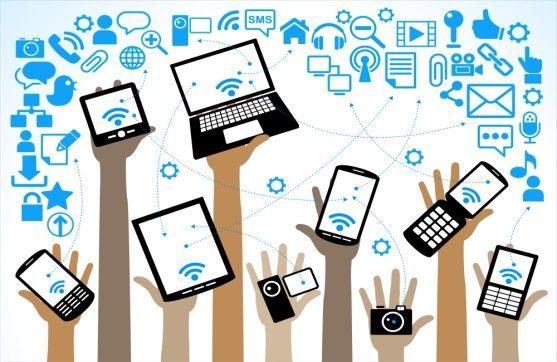Widgetized Section
Go to Admin » Appearance » Widgets » and move Gabfire Widget: Social into that MastheadOverlay zone
Internet and Social Media: Citizens and Public Services Need Renewed Rules
The views expressed are those of the author and do not necessarily reflect the views of ASPA as an organization.
By Itoko Suzuki
December 9, 2014
The last half a century has signified the establishment of the Information Age. Ever advancing information and communication technologies have transformed the ways people live and organizations work. The Information Age certainly increased the flow and volume of information as seen in the speedier and easier connection and through sharing by social media. But some people including this author, as an old-timer feel hesitant. Such people are accustomed to sharing their views, not face to face, only among their own circles.
 Citizens are generally well-informed already by other media and the Internet. Social media is distinct from other media like newspapers, TVs, movies or information retrieved from the Internet. Social media, through popular platforms such as Facebook and Twitter, seem to allow users to exchange and share their own views, in writing, pictures, sounds or voices. The users may enjoy learning how other people understand on a subject and deepening the various scopes. The sharing and interaction may certainly create comradeship in cyber circles. In some countries, such communication has created political participation or revolutionary incidents.
Citizens are generally well-informed already by other media and the Internet. Social media is distinct from other media like newspapers, TVs, movies or information retrieved from the Internet. Social media, through popular platforms such as Facebook and Twitter, seem to allow users to exchange and share their own views, in writing, pictures, sounds or voices. The users may enjoy learning how other people understand on a subject and deepening the various scopes. The sharing and interaction may certainly create comradeship in cyber circles. In some countries, such communication has created political participation or revolutionary incidents.
Social media is not free from the risks of information breach or by the increasing intrusion by government or others. Internet use has already involved the risks to privacy, safety or security of the users. Once wrong information is leaked, it is difficult to recover or be forgotten by society. These problems are not new, but are continuing issues in lights of our increased technology.
The problems of breaches and other perils to citizens’ rights related to information have constantly called for better regulatory and legal frameworks as well as new social codes and ethics. In public services, issues related to transparent and accountable government information release to the public have continuously raised. Public services must ensure the citizens’ rights to safety free from information breaches.
At the same time, the public services must promote the speedy delivery of transparent and accountable government information to the citizens. Delivery of transparent government information to citizens is beyond the information technology issue, but has remained as a basic public service issue.
Younger generations may not understand how old timers used to benefit from old information technologies like the telephone, telegraph or fax. It was the time before the microcomputers, and then PCs came to be used. Nowadays, despite the digital divide problems, citizens are generally benefited by lighter mobiles, such as Internet servers, Wi-Fi, tablets and many apps, with easier and instant access to all kinds of information globally. However, regular telephones or faxes are still widely used by citizens and organizations, including public services, simultaneously in many countries. Newer devices entered into old portfolio still in use.
By early 1980s, international organizations like the United Nations, promoted better public services and the use of information technologies in member countries and rigorously proposed the regulatory rules and legal frameworks pertaining information safety and breaches to protect users, particularly citizens privacy. At that time, it was envisaged that the more the information and communication technology advanced, the greater citizen participation in public services and more transparency of government information would be secured with the installation of the proposed rules and laws.
However, it was not the case in some countries like Japan. In Japan, these years experienced more than majority of the citizens did not participate in elections, while so much information for choice became available. Citizens’ political participation has decreased these years while transparency and speedy delivery of government information has not increased.
Japanese citizens have been shocked by the total lack of safety information on the nuclear power plants before and at the time of Fukushima nuclear disaster in 2011. The Fukushima case was a human driven disaster caused by the lack of transparent government crisis information not distributed to the citizens for long time. Japanese conventional media also lacked the information release. At the Fukushima disaster, it was the social media that quickly released the crisis information globally. It is not really the information technologies issue. Rather, the public services are essentially reluctant to release government information to the public, if the information is detrimental to the interest of the government.
The old United Nations alerts to install the information delivery rules and laws still remain valid. Social media hopefully will help to promote needed social ethics and codes among users, and push the government to install better legal frameworks of information and information technology use for the society. The needed rules and mechanisms must be shared by citizens, public services and all the other information stakeholders, so that the humanity can be really benefited by the Information Age.
Author: Itoko Suzuki is a retired senior citizen of Japan; former chief, Branch of Public Administration and Governance, United Nations; former professor in public administration in a few universities in Japan (2000-2010) including, Ritsumeikan Asia Pacific University. Suzuki can be reached at [email protected].


Follow Us!